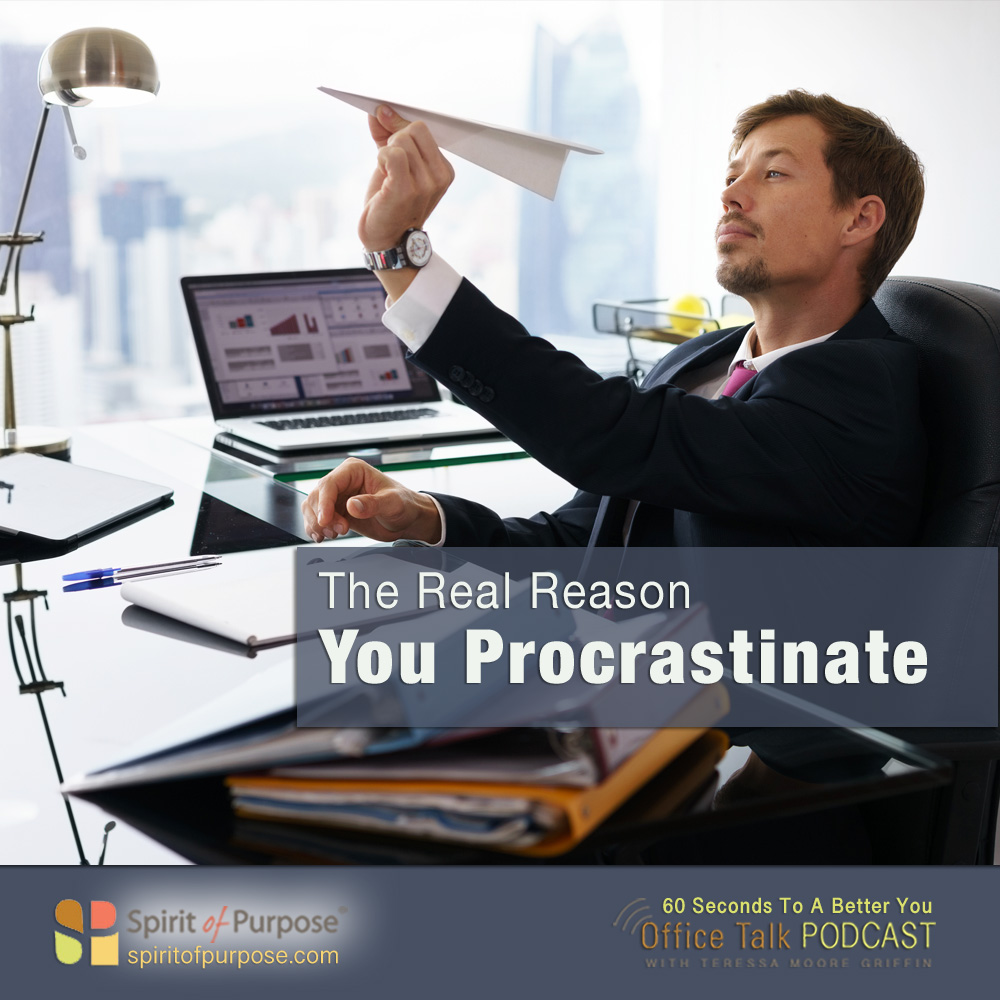PODCAST: The Real Reason You Procrastinate
Procrastination can be a challenge. Most of us have something we tend to hate doing and, therefore, put off. In a recent New York Timesarticle, Charlotte Lieberman shared insight from several experts on the subject. They surmised that procrastination is not a matter of poor time management or laziness. Its roots are emotional.
Members of the Procrastination Research Group at Carleton University in Ottawa say we procrastinate because we associate something negative with the task we’re putting off. We may be experiencing self-doubt, anxiety or insecurity. Not doing the chore makes us feel good, but it also makes us feel bad about ourselves.
In the moment, we don’t accurately perceive how these negative feelings will impact our sense of self in the future. Yet, once the effects of procrastination snowball, they result in measurably destructive effects on our mental, emotional and physical wellbeing.
Brown University’s Dr. Judson Brewer says you must first tackle the risk/ reward aspect of procrastination. We often feel rewarded when we put things off, then we feel bad about it. To break the cycle, forgive yourself for procrastinating. Research found that students who forgave themselves for procrastinating on one exam procrastinated less the next time.
Author Gretchen Rubin suggests making it more inconvenient to procrastinate and more convenient to complete the task. Try placing obstacles between you and temptation. One example: create a hard-to-remember password for that irresistible social media account.


